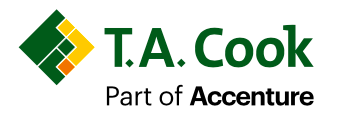A major petrochemical facility located in the United States Gulf Coast region sought to improve maintenance productivity. The organization engaged T.A. Cook to evaluate its maintenance program and implement an improvement program. As the following success story shows, the commitment of the combined team delivered impressive results.

APPROACH
T.A. Cook recognizes the critical role played by Front-Line Supervisors (FLS) to drive maintenance productivity and has defined the activities that make for successful supervision. FLS proactively gather information to avoid surprises and inform good decisions. They provide clear direction to their teams and then reinforce this direction by following-up in the field. FLS are problem-solvers who identify and remove obstacles to safe, productive work. Finally, successful FLSs are master collaborators who coordinate between production, other maintenance shops, contractors, and support equipment providers to keep the schedule moving through the day’s challenges. They ensure that the work is done safely and effectively so that repairs are done right the first time to meet business objectives.
Traditionally, the FLS is promoted from a hands-on role as a craftsperson. The transition from being an individual contributor to being a supervisor presents a host of challenges in any environment, and few workplaces are as unforgiving as a process plant. In our experience, most FLS receive no formal training and development support from their organization. Their only frame of reference is how other, likewise untrained, FLSs have carried themselves. This is no recipe for success.
Additionally, these FLSs are burdened with an array of administrative meetings and tasks, preventing them from spending time in the field with their crews. Their absence often results in costly delays as the team are left to deal with the challenges autonomously. Eventually, this leads to a lack of adherence and compliance with scheduled maintenance work as well as poor quality and inefficient work execution.
Findings. . .
Due to the critical importance of active supervision, day-in-the-life-of supervisor studies are a part of any T.A. Cook maintenance and reliability assessment. T.A. Cook carried out such a client engagement at a major petrochemical facility, finding that none of the maintenance FLSs in the study population spent any of their 10-hour shift in the field. It was no surprise, then, that craft productivity studies found only 23% productive hands-on-tools time. Revealing that a craftsperson spent only 9 hours and 12 minutes of their 40-hour workweek productively completing maintenance tasks. In contrast, the best practice benchmark for productivity is 60% hand-on-tools time (or 24-hours in a 40-hour work week).
Refocus. . .
To address this situation, T.A. Cook collaboratively designed an improvement program that included active supervision training for FLSs, followed by one-on-one coaching. The coaching took place over several months to enable the FLSs to apply the newly learned leadership and supervisory skills to the many challenges they face throughout the day. Additionally, T.A. Cook helped the supervisors to allocate their time throughout the day, with the aim of spending 30% of their day on active supervision and limiting administration to 25% or less. In addition, T.A. Cook supported planning and scheduling improvements to provide FLSs with a better basis for their supervisory activities.

ACHIEVEMENTS
By the end of the eight-month implementation, the FLSs had transitioned from zero field presence to 37% of their day spent in the field. Of this 18% of their time was spent in active supervision. As a result of their refocused approach, maintenance productivity more than doubled, rising from an initial value of 23% to a near-best-practice value of 54%. This represents 2.3 times more maintenance work completed with zero increase in headcount.
This type of improvement in maintenance productivity allows a plant to drive a more proactive maintenance program, improving equipment availability and ultimately increasing revenue.♦♦♦




